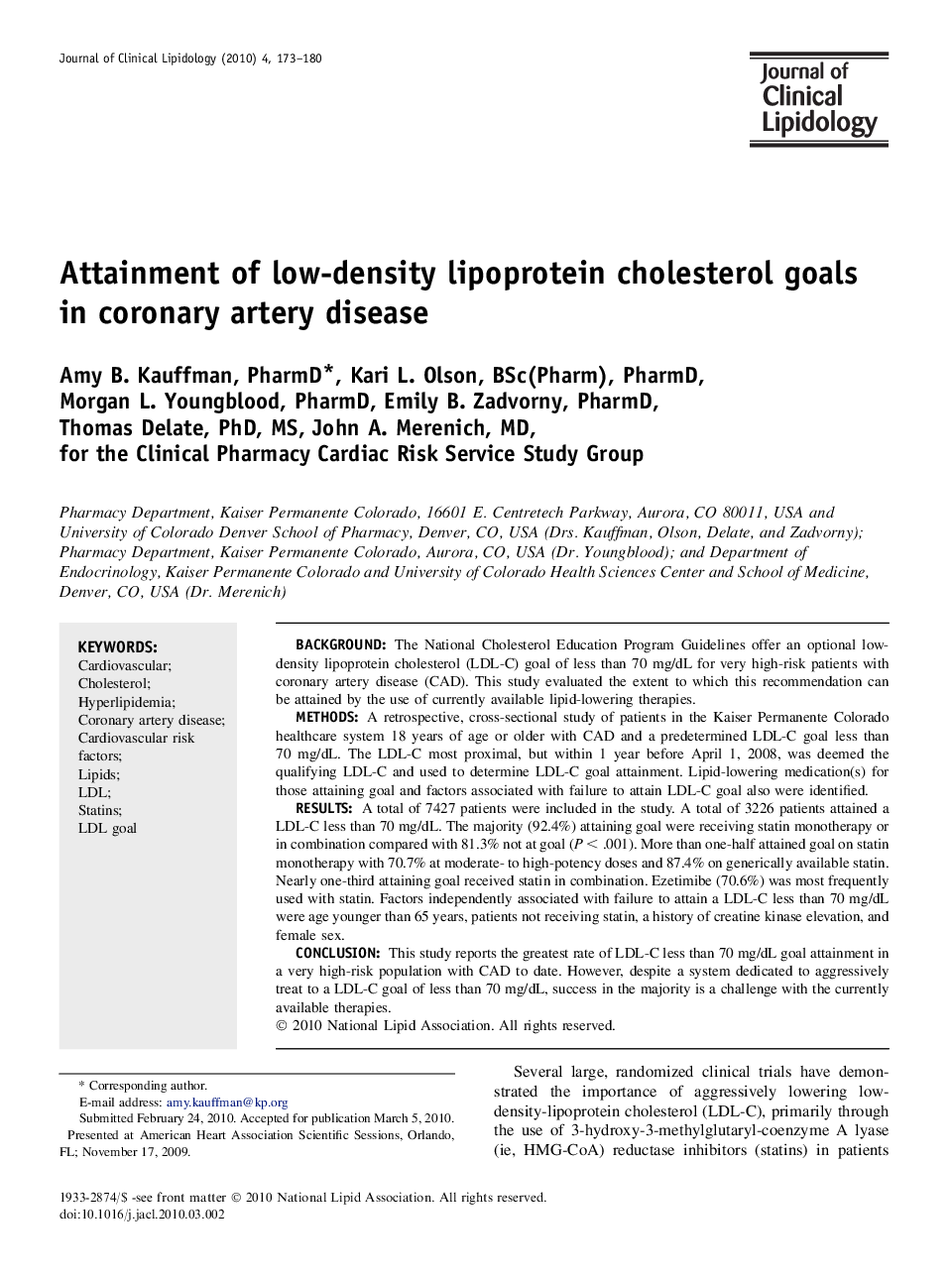| Article ID | Journal | Published Year | Pages | File Type |
|---|---|---|---|---|
| 2966400 | Journal of Clinical Lipidology | 2010 | 8 Pages |
BackgroundThe National Cholesterol Education Program Guidelines offer an optional low-density lipoprotein cholesterol (LDL-C) goal of less than 70 mg/dL for very high-risk patients with coronary artery disease (CAD). This study evaluated the extent to which this recommendation can be attained by the use of currently available lipid-lowering therapies.MethodsA retrospective, cross-sectional study of patients in the Kaiser Permanente Colorado healthcare system 18 years of age or older with CAD and a predetermined LDL-C goal less than 70 mg/dL. The LDL-C most proximal, but within 1 year before April 1, 2008, was deemed the qualifying LDL-C and used to determine LDL-C goal attainment. Lipid-lowering medication(s) for those attaining goal and factors associated with failure to attain LDL-C goal also were identified.ResultsA total of 7427 patients were included in the study. A total of 3226 patients attained a LDL-C less than 70 mg/dL. The majority (92.4%) attaining goal were receiving statin monotherapy or in combination compared with 81.3% not at goal (P < .001). More than one-half attained goal on statin monotherapy with 70.7% at moderate- to high-potency doses and 87.4% on generically available statin. Nearly one-third attaining goal received statin in combination. Ezetimibe (70.6%) was most frequently used with statin. Factors independently associated with failure to attain a LDL-C less than 70 mg/dL were age younger than 65 years, patients not receiving statin, a history of creatine kinase elevation, and female sex.ConclusionThis study reports the greatest rate of LDL-C less than 70 mg/dL goal attainment in a very high-risk population with CAD to date. However, despite a system dedicated to aggressively treat to a LDL-C goal of less than 70 mg/dL, success in the majority is a challenge with the currently available therapies.
